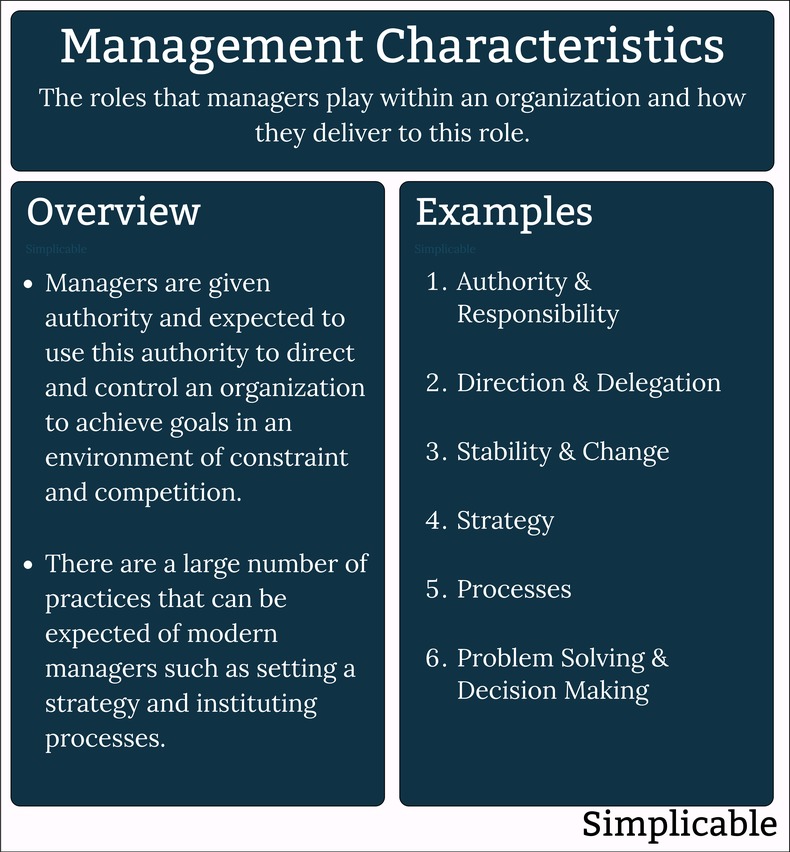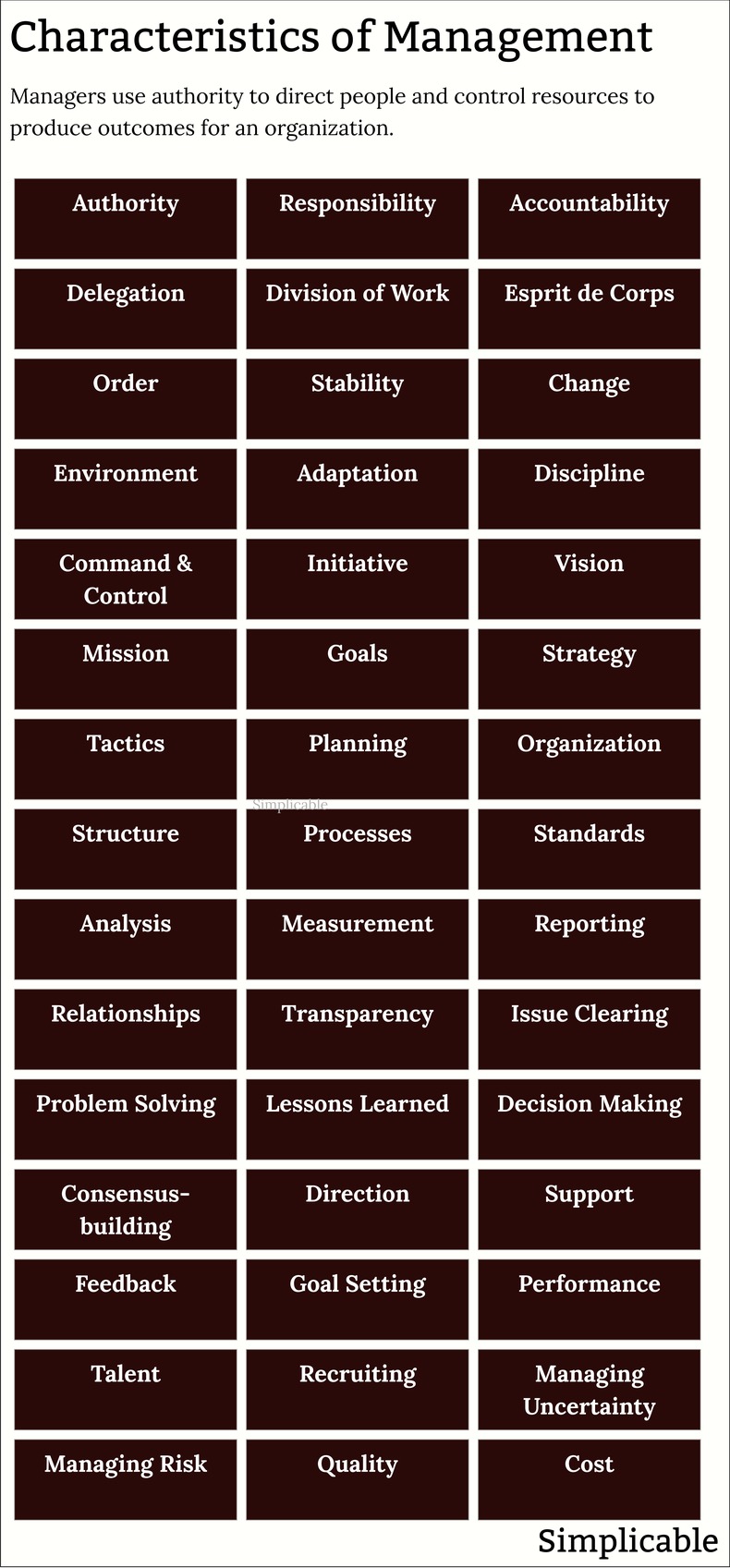|
| |
Characteristics of management are the functions that managers play in an organization and the things that they do to achieve these functions. At a high level, managers are given authority and use this authority to direct teams and allocate resources to achieve objectives. The following are the basic characteristics of management.
AuthorityManagers have formal authority to direct and control some aspect of an organization such as a team or product.ResponsibilityManagers have a set of responsibilities appropriate to their level of authority.AccountabilityManagers have accountability based on their level of authority. DelegationManagers can delegate responsibility but remain accountable.
Division of WorkManagers divide work to teams and individuals. This allows for the efficient specialization of labor.Esprit de CorpsManagers establish a productive working culture and sense of shared purpose.OrderManagers ensure that work is done in an orderly fashion with improvisation as appropriate.StabilityManagers provide a somewhat stable environment tempered by the need for change.ChangeManagers drive change to an organization.EnvironmentManagers respond to internal and external challenges and shape change with these factors in mind.AdaptationAdapting strategies, plans and processes to change.DisciplineMaking sure that employees fulfill their role according to the processes and policies of their organization.Command & ControlManagers are given instructions by someone with authority over them and can give instructions where they have authority.InitiativeIn most cases, managers are expected to take initiative and not wait around for instructions when something needs to be done.VisionManagers plan and communicate a vision of the future of an organization.MissionEstablishing a mission that gives an organization purpose and direction.GoalsManagers plan and communicate goals.StrategyDeveloping long term strategies to achieve goals.TacticsTactics are quick strategies that deal with current situations.PlanningManagers create detailed plans to implement strategies.OrganizationManagers organize teams and processes.StructureManagers structure organizations with elements such as roles and reporting lines.ProcessesEstablishing repeated steps for completing work efficiently.StandardsAdopting specifications for how things are done.AnalysisInvestigating things in a systematic way.MeasurementMeasuring processes and results.ReportingCommunicating status, issues and measurements.RelationshipsManagers cultivate relationships with teams and stakeholders.TransparencyIdeally, managers are not unnecessarily secretive and work to share important information that can be shared.Issue ClearingRemoving obstacles to processes, projects and other work.Problem SolvingManagers investigate and address the root cause of problems.Lessons LearnedManagers work to learn from failure and to identify and scale successes.Decision MakingManagers make timely decisions.Consensus-buildingBuilding support with an organization for a course of action.DirectionProviding teams with direction so that they can be productive.SupportSupporting teams to help them to learn, develop and achieve high performance.FeedbackProviding timely performance feedback to teams and individual contributors.Goal SettingSetting performance goals with teams and individual contributors.PerformanceEvaluating performance against performance goals, rewarding high performance and managing low performance.TalentProviding employees with training and development opportunities.RecruitingRecruiting new talent.Managing UncertaintyManaging uncertainty with estimates, forecasts and contingencies.Managing RiskIdentifying and managing risks.QualityEnsuring the quality of work outputs both tangible and intangible.CostControlling cost and exercising spending discipline.OverviewManagers are accountable for real world outcomes such as revenue, cost, reputation and risk. In order to achieve these things they set strategy, provide direction and manage resources to achieve performance, productivity and work quality across their department or team.SummaryCharacteristics of management are both the functions that managers play in an organization and the methods they use to deliver these functions.Next read: Principles of Management
If you enjoyed this page, please consider bookmarking Simplicable.
© 2010-2023 Simplicable. All Rights Reserved. Reproduction of materials found on this site, in any form, without explicit permission is prohibited.
View credits & copyrights or citation information for this page.
|











































